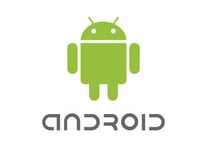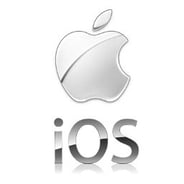Arguing which mobile app platform is the most popular among developers can be like debating religion --- much heat, little light, and even less information. But if you want to know the truth about which platforms are the most popular, there is an answer --- Forrester’s recent developer survey, “Brief: 2015 Mobile App Developer Platform Preferences” by Jeffrey Hammond and Christopher Mines at Forrester. The first finding probably won’t surprise you --- application developers increasingly are turning to mobile. Forrester surveyed developers of all kinds in 10 countries and found that 41% have developed for mobile in the past two years, up a full 10% from last year’s survey.
The first finding probably won’t surprise you --- application developers increasingly are turning to mobile. Forrester surveyed developers of all kinds in 10 countries and found that 41% have developed for mobile in the past two years, up a full 10% from last year’s survey.
Worldwide, Android phones are supported by more developers than iOS by a wide margin --- 70% to 51%. Last year, Android was more widely supported, as well. There was one significant change in this year’s survey from last year’s. In 2014, Android was the most supported in every region of the world, but in 2015 iOS phones lead Android phones in developer support by a 68% to 63% margin in the U.S. Everywhere else in the world, Android still leads in 2015.
When it comes to tablets, the results are similar. Worldwide, more developers write for Android tablets than for the iPad by a 54% to 44% margin. However, in the U.S., the iPad beats Android tablets in developer support by a 60% to 44% margin.
As with last year’s survey, iOS and Android are the two most popular platforms by a wide margin. But this year, Forrester found that Windows Phone has been showing surprising strength. More than one out of every three developers now targets Windows Phone, according to Forrester’s research. Windows Phone is particularly strong in Brazil, where it’s supported by 44% of developers. And there may be even more good news on the horizon for Windows Phone. Forrester concludes:
“Windows Phone may be an afterthought for many developers — but it has separated itself from the rest of the second tier of the mobile platform pack. Microsoft’s move to a unified, cross-device OS with Windows 10 will reduce targeting costs further in 2016 and beyond.”
As for other mobile platforms, including Bada, BlackBerry 10, Firefox OS, and Tizen, Forrester says they’re a mere afterthought. They all lost ground with developers in 2015. Says Forrester: “Barring an unforeseen increase in their device market shares going forward, we can’t see them as anything other than niche players at best.”
Read Forrester’s related advice for CIOs in charge of mobile app development for their organizations.







Comment